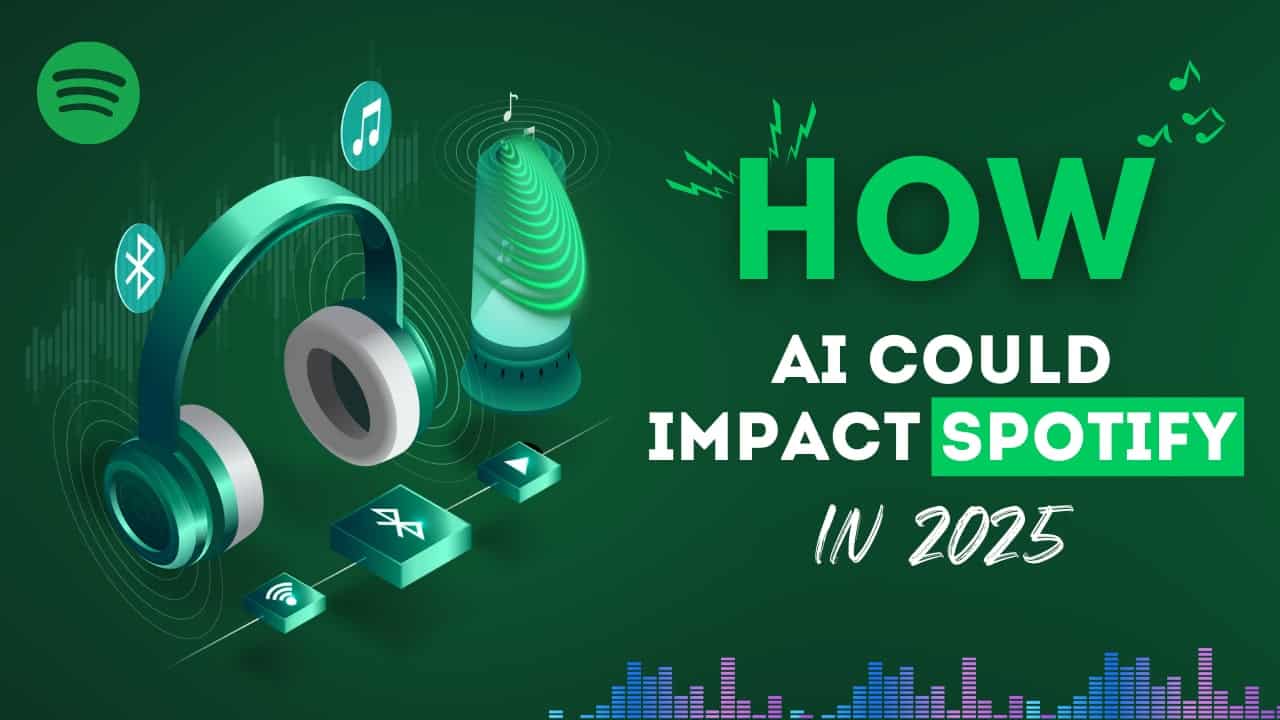The music industry has had to change many times in order to keep up with listening habits and technological innovations. Today, most music fans use streaming services to listen to their favorite bands due to the amount of music available and the convenience of having everything on one platform.
Statista’s ‘Share of Music Streaming Subscribers Worldwide’ report shows that Spotify is by far the most popular streaming service, with a 31.7% share of all global subscribers. As described in ‘How to Download Music from Spotify for Free’, the streaming service has an extensive library of more than 100 million songs. This has allowed Spotify to become the dominant streaming service, and one reason for this is that the service puts AI at the center of its platform.
As we outlined in our post ‘How to See Your Spotify Room’, the streaming service is using an AI-based platform called Verse that can analyze your listening habits to create a virtual room that matches the listeners’ vibe. This allows users to have a deeper connection with music in a way that other platforms can’t compete. As AI becomes increasingly integrated into Spotify, it could have an even bigger impact in 2025.
Improved Personalization
Spotify’s ability to curate music for its users has made it increasingly popular and dominant in the market. It can do this through specialized AI algorithms. ‘What is Artificial Intelligence?’ by MongoDB explains that algorithms allow AI to make human-like decisions by comprehending data into patterns and performing difficult tasks with ease and accuracy. Currently, Spotify has several AI curation and recommendation features, including Discover Weekly, Spotify Wrapped, AI DJ, and the most recent AI Playlist.
An Increase in AI-Generated Music
Spotify will continue using AI to enhance its recommendation algorithms, but AI-generated music could have a significant impact in 2025. A Fast Company article, “Spotify is Full of AI Music,” highlights how musicians face growing competition from AI-generated tracks. Some of these tracks have attracted hundreds of thousands of listens.
The ability to create music using AI has grown rapidly. Since Spotify has no policy against artists using autotune or AI tools, the platform has become a hub for AI-generated music. Users can trigger earnings by uploading songs just over the 30-second limit.
This trend could heavily affect musicians’ earnings on Spotify. Newton-Rex, CEO of Fairly Trained, a nonprofit certifying AI companies, said, “It’s clear this is going to eat into the royalties and revenue streams paid to real human musicians.” While AI-generated music offers listeners more content options, it also exposes Spotify to criticism regarding its treatment of musicians.
AI Will Boost Spotify’s Podcasting Service
Alongside music streaming, Spotify has become one of the most popular platforms for hosting podcasts. Over the past year, Spotify has used AI to expand the global reach of podcasts with a translation service. This is made possible by large language models that provide translations. Spotify allows users to listen to their favorite podcasts in their native language using these AI translators. This feature is expected to grow further in 2025.
At the end of 2024, Spotify teamed up with Google to create the Spotify Wrapped AI podcast. This AI-generated podcast features two AI hosts from Google’s NotebookLM that unwrap the user’s year in music. In 2025, this feature is expected to have a bigger impact on Spotify by deepening audience connections. Fully AI-generated podcasts will let users create personalized shows based on their preferences. These could include music and specific interests, giving users more control over the content they consume.
AI has shifted Spotify from being just a streaming service. By 2025, it will drive further transformation through increased personalization and a broader range of choices.


